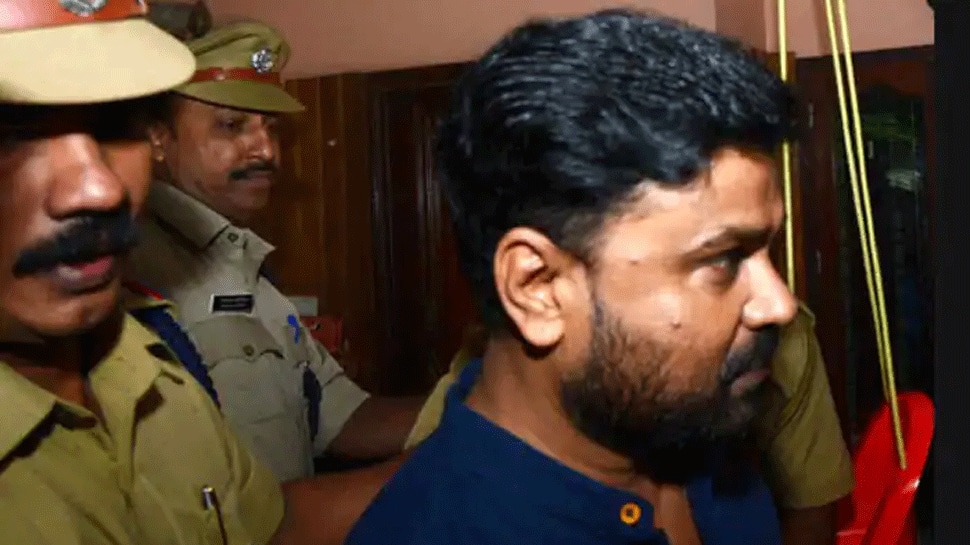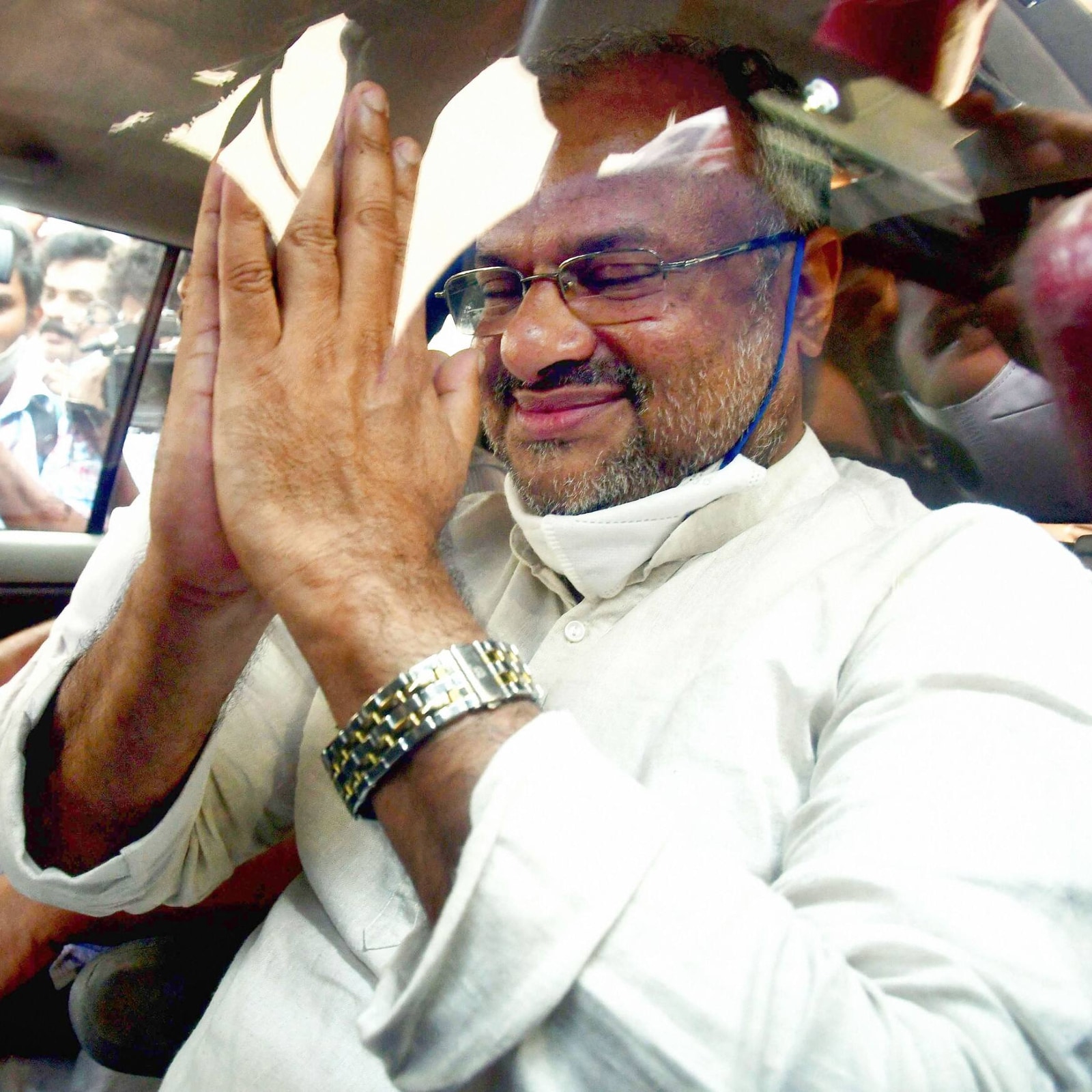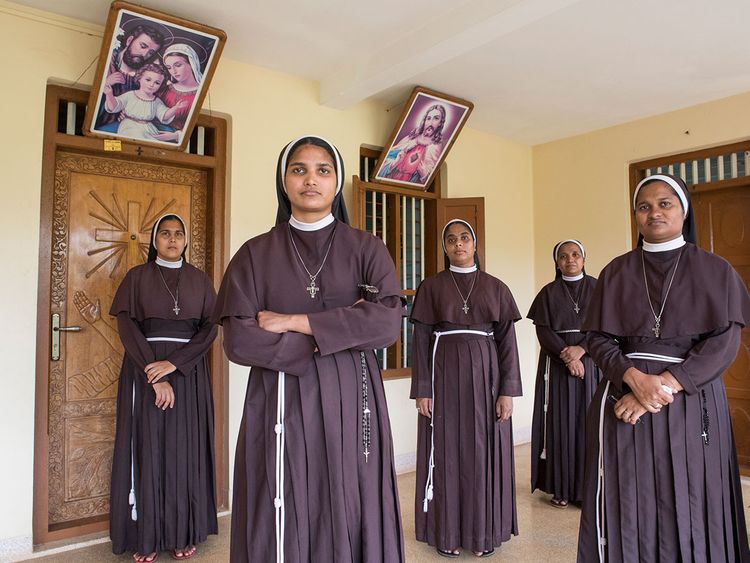2022 began with a series of aggravating and blatant criminal violations of women’s sexual safety and human rights in the south Indian state of Kerala.
Though the child has been returned to his birth mother, the individuals and officers, including government employees, involved in the 2019 illegal kidnapping and out-of-state adoption of Anupama Ajith’s infant son are still not prosecuted under the writ of law. Lawyer, Dalit activist, and teacher Smt. Bindu Ammini was beaten in a politically motivated attack in public in broad daylight. Kerala High Court has decided to postpone arresting actor Dileep in connection with the actress abduction and molestation case and its aftermath. Justice Hema Commission report on the sex racket in the Malayalam film industry is still not released despite repeated demands from within the industry and the general public.

Also read: Vanitha’s Latest Edition Really Wants Us To Sympathise With Sexual Assault Accused Dileep
That the state might be well on its way to turn into a breeding ground of sexual predators acting with disturbing impunity is nowhere more evident than in the most recent rape trial of the Catholic Bishop Franco Mulakkal.
A trial court in Kottayam, Kerala, acquitted Bishop Franco Mulakkal who was charged with repeatedly raping a nun from the Missionaries of Jesus convent in Kuravilangad, Kottayam, between 2014-2016.
A trial court in Kottayam, Kerala, acquitted Bishop Franco Mulakkal who was charged with repeatedly raping a nun from the Missionaries of Jesus convent in Kuravilangad, Kottayam, between 2014-2016.
Is Kerala legally trying to become the poster child for rape culture?
Is Kerala set to decriminalize rape?
Rape trials are treated notoriously reductively both in court and in media coverage as “he said, she said.” However, this rape trial is better described as “he said, she said, he said,” the final attribution linked to the novelistic judicial verdict written by the presiding judge in the case.
The 289-page verdict, while paying lip service to “the oral testimony of the victim,” waxes poetic on the many reasons why women who have been sexually assaulted or raped do not file charges immediately.
Around page 200 of the 289-page judgement, citing a handful of preceding case laws, the verdict allows that in “sexual offenses” “the fear of social stigma would definitely cause some indecision, resulting in delay and hence a credible explanation, devoid of any malice, or grudge would be more than sufficient for the prosecution to keep the ball rolling.”
Despite its jaunty metaphor, however, the judgement goes on to assert that “this exception is also applied with much care and caution,” because “as in any other crime, false accusations are on the rise in rape trials as well.”
It takes the verdict 200 pages of busy work — report, analysis and interpretation of the statements of numerous witnesses for prosecution, defense and court, examining evidence from numerous letters, emails, videos, phone calls, land surveys, canon laws, laptop repair receipts, courier service receipts etc. etc. — to finally come right out and regurgitate the predictable socio-cultural attitude prevalent in rape trials: rape victims are not believed.
The verdict goes to assert that the “victim,” Sister X, the unidentified nun cannot be “categorized as a sterling witness,” and “as a wholly reliable witness” due to the “inconsistent version of the victim.”
S. Harisankar, former Kottayam district police chief who led the initial investigation into the rape allegations noted that “it was after suffering huge psychological pressure that the survivor disclosed the assault to her fellow nuns.” He called the verdict “extremely unfortunate” and one that sends a “wrong message to the society.”

The message this verdict sends is clear: if you are raped and you file criminal charges against your rapist, don’t expect any justice from the Kerala courts.
Without any seeming understanding of how sexual trauma affects victims of forcible sexual offenses, including suffering from post-traumatic stress syndrome and fragmented memories, the verdict, along with the defense, attacks and seeks to discredit the survivor and her testimony. It attempts to undermine her credibility, her character, her reputation, and the fundamental consistency of her account of the rapes in the interviews and cross-examinations. On more than one occasion, the verdict simply dismisses the experiences of the survivor, as if recollecting sexual trauma is a walk in the park on a sunny day.
Particularly egregious and offensive is the verdict’s cavalier dismissal of the incidents surrounding the false allegation that the survivor engaged in a sexual liaison with a relative. This allegation is directly meant to discredit the survivor’s character and reputation, to portray her as “a loose woman,” as the survivor is referenced elsewhere in another deposition included in the verdict.
Besides, the incident involving witness PW16 and the false affair story is crucial to the defense team’s claim that the survivor brought charges against Mulakkal because she was being investigated by the congregation for her alleged affair. Thus, even when witness PW16 who initially cooked up this false allegation later testified that she made up the story, the court and the verdict go to great lengths to prove that this phony story, claimed by its teller herself as false and concocted, is true.
“It is true that PW16 has deposed before this court that the complaint leveled against the victim was false and that she filed the complaint on account of her hostile relationship with PW1 and PW7 and CW10, the brother of the victim. But it is doubtful whether a lady of the stature of PW16 who is a teacher by profession would malign the reputation of her own husband, who is a lawyer practicing at the Hon’ble Supreme Court of India, for a silly verbal brawl with PW1 and her family members.”
If the above sounds a bit like the court wooing PW16 by appealing to her class, status and occupation, that is not out of order. If anyone needs this false story to be true, it is Mulakkal’s defense, and, ironically, the court itself, it appears. For the defense case to win in court, then, they, and here the court itself, need to move their self-serving narrative forward that the survivor brought the rape charges against Mulakkal AFTER she was investigated for the alleged (fake) affair. The verdict flaunts this dubious interpretation thusly:
“From the mere fact that the accused was instrumental in ordering an enquiry against the victim one cannot reach to a conclusion that the enquiry ordered by the accused was part of his retaliatory measure for not yielding to his sexual demands, on the 14th occasion. It is quite natural for a person at the helm of the affairs to order enquiry into a complaint, when serious allegations of inchastity are raised against a nun, that too by her own cousin.”
The contempt of the court for the rape survivor comes through very clearly in the sneering remark about “the 14th occasion.” While correlation does not create causation, this narrative is a flagrant attempt to discredit the numerous previous attempts that the survivor made to report her sexual assault and rapes within the church. The defense timeline attempts to reframe the rape as retaliation against Mulakkal by the survivor.
The verdict similarly discounts and dismisses the numerous pieces of evidence in the form of depositions, statements, and letters by making several inadmissible in court citing procedure. Certain other crucial depositions, such as that of PW2, the survivor’s spiritual mother who knew about the rape in 2014, are dismissed by framing them as inconsistent and stopping short of calling them in the verdict an outright lie. The intent is to discredit the character of the witness, and to cast doubt in the public eye on these crucial pieces of evidence as being fabricated.
Also read: Sexual Harassment In Workplace: What Happens When It Is A Religious Institution
This is not justice. This is nothing short of legal rape of a rape survivor.
Elsewhere, certain interpretations by the court are beyond disbelief. Regarding the text messages that Mulakkal sent to the survivor, court notes that they reveal the “nature of the relationship between the accused and PW1:
“The message of the accused going by the Sec. 164 statement of the victim was that “with heavy heart I am joining with your decision.” I want to see you, I want to need you, call me.” No threat or intimidation or force is revealed from these messages.”
It is really quite stunning that the court can just mention this and move on: a Catholic Bishop with a vow of celibacy accused of the rape of a 44-year-old nun making overtures to the nun, also with a vow of celibacy, that he wants to see her, that he needs her, that he wants her to call him.
The court dismisses the charges of rape against Mulakkal by asserting that the survivor spoke about being “pressured to share the bed” with Mulakkal, and did not use the word “rape” in some of her statements. Such sensitivity to language use does not seem to extend to Mulakkal’s text where the Catholic Bishop talks like a lust-filled Romeo. It is simply passed over.
It is often said that a rape trial subjects a rape survivor to yet another round of victimization, yet another round of retraumatization in the court and judicial system. In the case of Sister X, the unidentified nun in this rape trial, this is the absolute truth.
It is often said that a rape trial subjects a rape survivor to yet another round of victimization, yet another round of retraumatization in the court and judicial system. In the case of Sister X, the unidentified nun in this rape trial, this is the absolute truth.
The sheer number of people to whom the survivor repeated the details of the rape without any respite is staggering. A majority of these submissions are dismissed by the court as “inadmissible,” and “inconsistent”. The verdict repeatedly makes assumptions about what a rape survivor would do: “normally, a survivor would not forget…,” “any reasonable and prudent person would…,” survivor’s actions are “beyond comprehension” etc. Is the court an expert on human behavior? On the psychological consequences of having experienced sexual violence?
The verdict describes the crucial testimony of PW2 as “shaky,” whereas the deposition’s language reveals the absolute terror in the witness: “My head is spinning upon learning that my letter to my supervisor in the church was given to Franco’s lawyers.” (author’s translation). These are not the words of someone who is “shaky”; these are the words of someone who is terrified of what Mulakkal might do to them.
Hostile prosecution witnesses, dismissal of survivor testimonies and evidence citing procedure, demeaning and denigrating the character and reputation of the survivor as sexually promiscuous, characterizing the rape charges as revenge against Mulakkal for being the child prodigy among bishops, including the highly amusing story of the “jealous” Mulakkal opposition trying to start an alternate congregation and using the survivor as a pawn in their factions – this is what defense lawyers do to create doubt, and to keep their rapist out of prison. It is appalling that the final verdict sided with these tactics.

However, this trial is far from over. This verdict is not the last word. There will be justice for Sister X, unless Kerala’s criminal court system wants to make a public announcement that they have decriminalized rape.
Bio: Gayatri Devi is Professor of English at the Savannah College of Art and Design, Savannah, Georgia. She can be reached at gdevi@comcast.net.
Featured image source: news18.com




